Students started Tuesday with one question: What was BEE thinking by starting the day with a talk on the federal budget? Coffee hadn’t kicked in and students were hearing about jurisdiction, appropriations, and authorization already!
It was the second day of the Washington D.C. immersion week for students in Business & Government: Understanding and Influencing the Regulatory Environment – the new Olin-Brookings Executive Education course taking place this week inside the beltway.
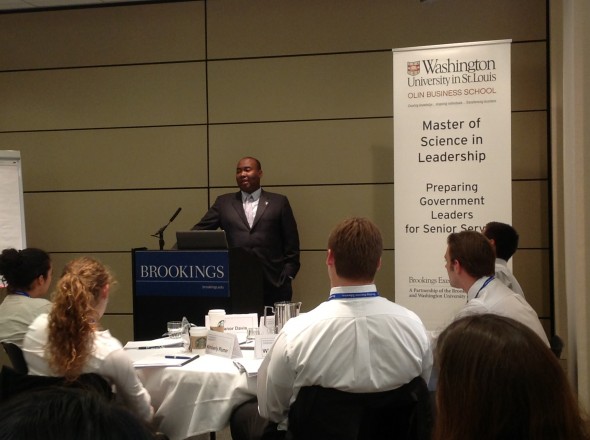
Jaime Harrison shares his political expertise with students at the Brookings Institution in Washington, D.C.
It didn’t take long for students to switch into political gear. Former Michigan Congressman Bob Carr’s presentation on the budget was fascinating and illuminating. As a result, the students will be discriminating consumers of news broadcasts that conflate the federal deficit and debt.
Jaime Harrison, former House Floor Director for Democratic Whip Congressman Jim Clyburn and now chairman of the South Carolina Democratic Party, was the next guest speaker on the agenda. He shared the secrets of advocacy, explaining the many nuances of communications strategies. This presentation should certainly help with the class assignment to develop an advocacy plan on the topic of high-level nuclear waste repository.
The luncheon speaker was David Burstein, author of How the Millennial Generation is Shaping Our World. It was clear that the millennials he has interviewed do not reflect the experiences of our Olin students. David should visit St. Louis to learn about the challenges so many of this generation are facing.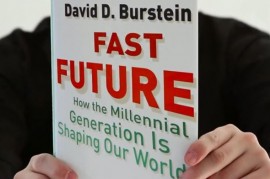
Class members had a chance to role-play Members of Congress in an interactive and eye-opening simulation about Congress. Everyone was able to master the process and got re-elected by the time the exercise concluded. Former Congressman Bob Carr returned to share dinner with the group while discussing how closely the simulation depicts reality. Given the chaos produced during the exercise that might not be consoling news.
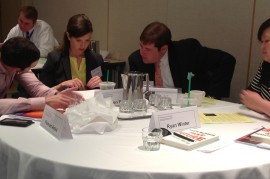





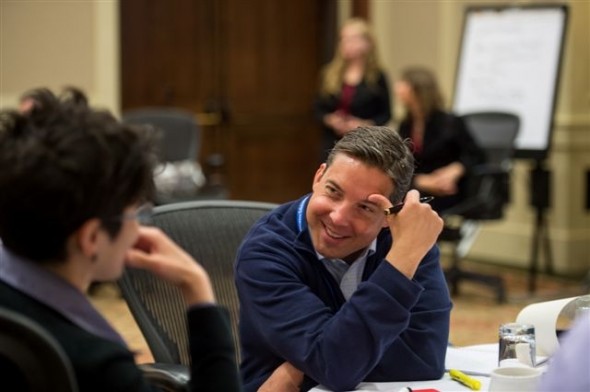

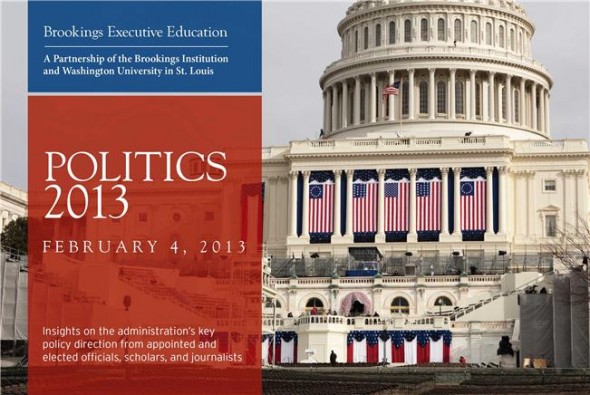
 “The theme that came out of the day was continued gridlock. Neither party wants to move, especially to address some of the fiscal challenges this country needs to face. Democrats need to embrace entitlement reform and Republicans have to address revenues. Neither party can afford to demonize the other to effect a real solution.” – Ian Dubin, Senior Program Manager, Brookings Executive Education
“The theme that came out of the day was continued gridlock. Neither party wants to move, especially to address some of the fiscal challenges this country needs to face. Democrats need to embrace entitlement reform and Republicans have to address revenues. Neither party can afford to demonize the other to effect a real solution.” – Ian Dubin, Senior Program Manager, Brookings Executive Education